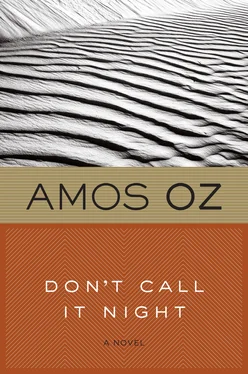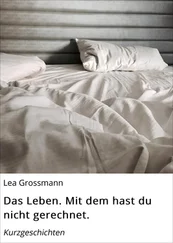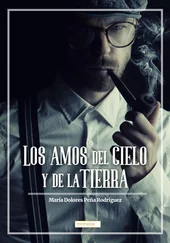Theo said:
Permit me to outline briefly the difficulties we may anticipate. First, Batsheva can prolong the discussion in the Town Council as long as she likes. She can set the subject low on the agenda. She can work against us in the government departments, to prevent us from getting the permits. She can have the matter discussed but delay it indefinitely with all sorts of formal and technical snags. Second, the public is already up in arms. Setting up the clinic will bring property values down, will lead to nuisance from crime and noise, will expose local youngsters to contact with dubious elements. People claim that they have invested their money in an apartment in Tel Kedar to live a peaceful life, whereas the clinic will wreck their peace and quiet, with ambulances in the night, police patrol cars, violent incidents, criminal elements springing up in the wake of the addicts. Anyway, you don't turn a town with hardly any crime into a cuckoo's nest or a refuse heap for the big cities for a fistful of dollars. Who needs addicts here? Pushers? Pimps wandering round the school during break? Fifteen-year-old drug-sniffing hookers? Little junkies robbing homes and stealing cars and mugging old folks to scrape together a few pennies? And dirty needles in our gardens, maybe infected with the AIDS virus? They're already going around from door to door getting Tel Kedar to sign petitions — what's all this about treatment, once an addict always an addict, and there's bound to be someone behind it who plans to make a fortune out of it, and why here anyway, isn't it enough they've saturated us with new immigrants that no other town would take in such quantities? Soon they'll be sending us Intifada kids from the Territories, Molotov cocktail throwers, for rehabilitation. And the more the objections multiply, the more Batsheva will have a field day, dealing with each different objection separately, the procedure will drag on for years, and that's before the residents get organized and start taking legal action. Apart from which, the Town Council is liable simply to refuse outright to sanction the change of use in relation to the existing municipal master plan. Checkmate. And that is only on the local level. But there are other levels too: the Departments of Welfare, the Interior, Health, Education, the police, half the government in fact. And we haven't even begun to talk about the running costs. Shall I continue?
Avraham Orvieto sneaked me one of his winter-light smiles, and said pensively: What then? Should we give up? Make do with a memorial garden with some swings?
Theo said: Compromise.
And Ludmir: Compromise. Compromises stink.
Then Muki Peleg reported to the committee on the sale of the apartment that had belonged to the aunt, Elazara Orvieto, which was henceforth to house a dental surgery. The money that would shortly be received for the sale would, with Mr. Orvieto's consent, go straight into the trust fund and could be used for the renovation of the Alharizi house once love had broken down the barriers of prejudice, as the rabbi said to the nun.
I did not speak.
And so it was decided that Theo would go to Jerusalem with Avraham Orvieto the following week, to try to secure the support of the minister who had served with Theo in a combat engineering unit forty years ago and knew Avraham well from his days as military attaché in Paris. It was further decided to meet with the authorities of Beersheba University and the leaders of the Anti-Drugs Campaign. And it would be necessary to alter the composition of the committee. It was essential to bring in at least a nucleus of influential and well-connected citizens, teachers, social workers, psychologists, respected local personalities, perhaps one or two parents who were progressively minded, or whose children were affected by the problem, and the editor of the local paper; and maybe also an artist or two.
It turns out, said Ludmir blankly, that I am redundant.
And Muki Peleg added: As the husband said when he surprised his wife in his neighbour's arms. Will you leave Linda in, at least? So she can go on doing the typing?
After the meeting, when Ludmir and Muki had left, Muki hurrying ahead in his sky-blue shoes to call the elevator while Ludmir ambled after him with his camel's gait, Theo said: I'm going to leave you here for a quarter of an hour while I pop down and fetch us a pizza from Palermo. We'll save the time we would have wasted making lunch. When I get back and we've eaten we'll go down and introduce Avraham to the place.
After the pizza we showed our visitor Tel Kedar, because Avraham Orvieto had asked to "catch something of the feel of the place". The gasping Chevrolet had trouble starting again, despite the two recent repairs. On the way Theo took it upon himself to explain the misconceived plan on which the town had been built, a conception that was doomed from the start. It may have been these words that made Avraham turn and send me another secret, fleeting smile, as though I were being offered a glimpse of a pleasant, cosy room. Whose shutters were closed again after a moment. A frail, slightly built man, with thinning white hair; his face furrowed and wrinkled by the African sun: the face of a veteran metal engraver who has retired and now divides his time between reading and thinking. He spoke only a little, in a soft grey voice, with self-effacing hesitancy, as though he found the very act of speaking to be something noisy. "And where are we meant to be shining, and by whom is our shining required?" I asked him silently from the back seat.
We drove slowly past apartment blocks and private houses, past palm trees ruffled by the desert breeze, fainting lawns, and poinciana saplings kept alive, as in intensive care, by a drip.
It's beautiful, it's exciting, said Avraham Orvieto, a completely new town, with no biblical or Arab past, built on a human scale, and you don't see any poor districts or any signs of neglect.
Maybe it's wrong of us to take it for granted.
Theo said: Modestly built is not necessarily a compliment.
And Avraham: Not necessarily. But it is.
At the square by the lights we stood for a few minutes in front of the Monument to the Fallen, on which were inscribed, in metallic letters, those words, the beauty of Israel is slain upon the high plac's, the penultimate letter still missing. In the same letters, only smaller, were the names of the twenty-one fallen, from Aflalo Yosef to Shumin Giora Georg. Old Kushner was sitting, hunched up, on a stool in the doorway of his cubbyhole, reading a thick volume. In the window of his shoe shop Pini Bozo had now placed his lacquer-wood model of a holy ark. Inside the ark passers-by could now see the colour photograph of his dead wife holding the dead baby aloft in her arms, touching the baby's forehead to her own, smiling to it with strong bright teeth, while the baby beamed back at her with its toothless mouth.
Then we had coffee in Theo's office, "Planning", on the top floor of the building to the left of the Town Hall. On the wall there were various maps, views, an enlargement of Ben Gurion staring resolutely towards an expanse of barren gullies. Theo showed his visitor some plans, ideas that he had thought up for an environmentally sensitive development in desert conditions, sketches of streets, squares, vaulted buildings related to one another in a manner carefully calculated to cast shadow and to repel the dazzling light, forming winding alleys like shaded valleys. It was plain that even though the visitor spoke little, his very presence ignited in Theo a sort of electric alertness. After the second cup of coffee Theo even took a blue folder out of a drawer and extracted from it three different sets of plans for the refurbishment of the Alharizi house. Avraham Orvieto looked at them silently for a while, and did not take his eyes off them even when he put a brief, conspiratorial question and received a terse reply. I did not hear what the question was, and I missed the answer too.
Читать дальше












